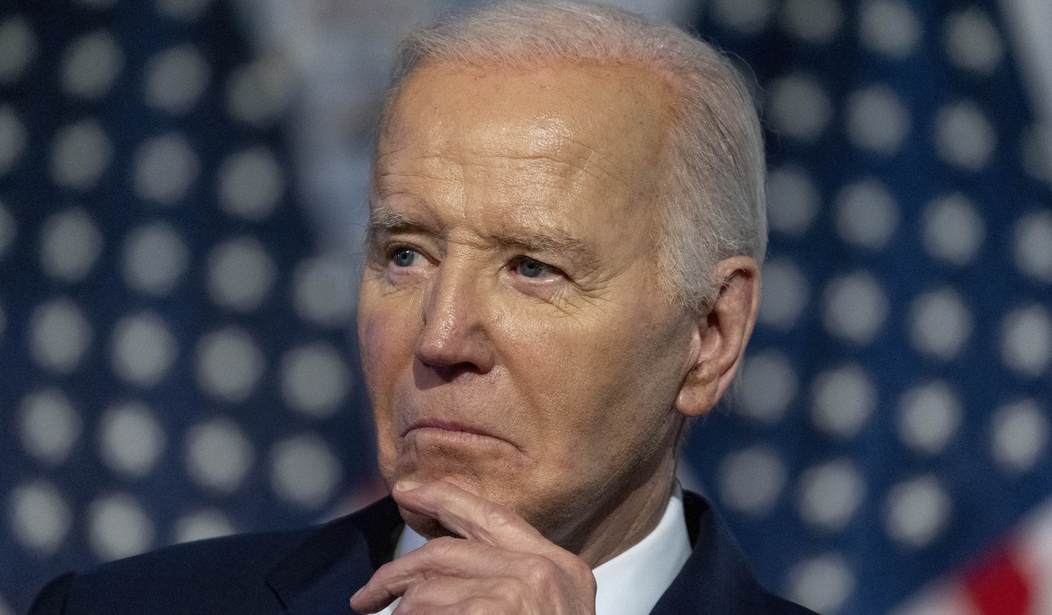If you want to explain to a puzzled, left-leaning writer like The Atlantic's Annie Lowrey why most voters this year rate the economy during former President Donald Trump's term more favorably than the economy during President Joe Biden's, you might start with a pair of simple charts.
Lowrey said the Biden years have seen "the strongest economy the United States has ever experienced." She cited an unemployment rate below 4%, wage growth higher "than it was at any point during the Obama administration," and "stronger pay increases than any president since Richard Nixon." Inflation, she noted defensively, "has cooled off considerably."
All well and good, and you can hear similar thoughts from Democratic economists and Biden administration spokespeople, together, sometimes, with suggestions that many voters are, well, just not knowledgeable or sophisticated enough to appreciate the bounty the administration's policies have produced.
In response, look at the pair of charts tweeted by Republican consultant Patrick Ruffini as evidence of "how Joe Biden is losing the election with an economy like this." They come from an article in last weekend's Wall Street Journal by Greg Ip and Rosie Ettenheim.
After comparing rises in the Dow Jones average during the two presidencies, the writers explain that "a better measure of financial wealth is net worth: all assets, including stocks, bonds, cash and property, minus debts. Total household net worth rose 19% through Biden's first three years in office, according to Federal Reserve data -- not much less than the 23% through Trump's first three years."
That's reflected in the first of the pair of charts. The second takes inflation into account and shows the changes in household net worth. The first year of each administration saw modest increases, under 10%, but 15 months in, the lines diverge.
Recommended
Real household net worth kept climbing during the Trump presidency, with some downward spikes roughly coinciding with the Nov. 2018 off-year elections and the imposition of COVID-19 restrictions. Altogether, inflation-adjustment household net worth grew a robust 16% during the Trump presidency.
In contrast, the line showing real household net worth during the Biden presidency shoots downward in summer 2022, following and perhaps sustaining the plunge of Biden's job approval rating after the botched withdrawal from Afghanistan.
For the last two years, real household net worth has mostly continued in negative territory, finally poking just barely above the Jan. 2021 level. For the total Biden presidency so far, Ip and Ettenheim reported, it is up a barely perceptible 0.7%.
Given these numbers, it should not be entirely mysterious why many people, including most partisan Republicans but many Democrats as well, don't believe they are witnessing "the strongest economy the United States has ever experienced."
It's true that most political commentary and the economic exhortation one can find in The New York Times opinion pages don't highlight changes in household net worth. But it may be a better index of voters' economic discontent (or contentment) than the oft-used unemployment or total income figures.
When I was growing up in Detroit in the 1950s, people lived in terror of unemployment. They had vivid memories of the Great Depression, in which stretches of unemployment could last for years, maybe permanently, and the absence of a regular paycheck meant meatless meals and raising vegetables in backyard gardens. You couldn't get through by using your credit card for groceries or school clothes (Visa was introduced in 1958 and was uncommon for the next decade).
Inflation operates differently today, too. Voters under 60 have had no significant experience with inflation in the U.S. When prices suddenly jump up by magnitudes entirely outside your experience (gasoline is up 48%, electricity is up 28%, pet food is up 24%, and restaurant meals are up 21%), and when they show no sign of falling back to familiar levels, you may be inclined to blame a national administration, particularly one that boasted of injecting vast sums into an economy that had high savings rates during the pandemic. And you may not take comfort from assurances that inflation "has cooled off considerably."
These days, most people are on a path to accumulate modest but significant wealth. They can withstand, with some pain, a bout of unemployment and low wage increases, as in 2007-17. But a spell of persistent inflation leaves them feeling they're falling behind. No wonder "Bidenomics" is a hard sell.
Meanwhile, Democrats' argument that Trump poses a threat to democracy is "not working," as Ezra Klein, Lowrey's husband, wrote in The New York Times. Most of the Biden-encouraged prosecutions of Trump have been postponed, perhaps indefinitely, and the kangaroo court proceeding in Manhattan is discrediting not the defendant but his prosecutors. On this, as on the economy, Biden strategists are better at fooling themselves than fooling the voters.
Michael Barone is a senior political analyst for the Washington Examiner, resident fellow at the American Enterprise Institute, and longtime co-author of The Almanac of American Politics. His new book, "Mental Maps of the Founders: How Geographic Imagination Guided America's Revolutionary Leaders," is now available.
























Join the conversation as a VIP Member